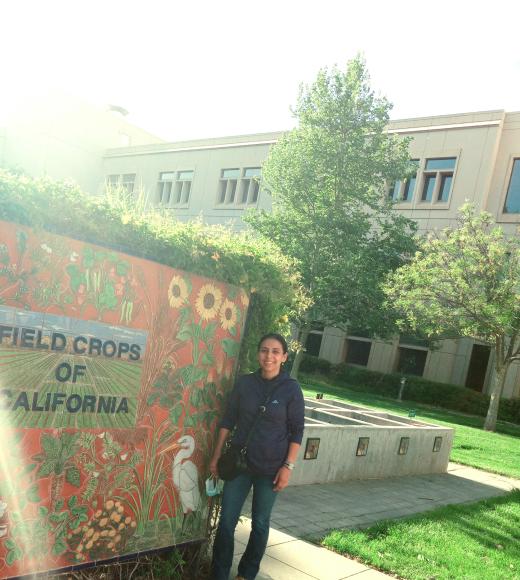
Position Title
Co-advised PhD student at Pontificia Universidad Javeriana de Cali, Colombia
Background
Sandra is a doctoral student in Engineering and Applied Sciences at the Pontificia Universidad Javeriana de Cali, Colombia. She is also a researcher in the Multifunctional Landscapes program at the Alliance Bioversity and CIAT. Her work focuses on the area of climate change mitigation in the agricultural sector.
PhD Project
My research goal is to determine the mitigation potential of climate-smart strategies and agronomic practices implemented by small rice farmers in different regions of Colombia. Through the quantification of GHG emissions in different field experiments focusing on water management and low-emission rice varieties, this work will support the development and sustainability of smallholder agricultural production systems. My previous research experience includes the environmental impact and energy potential of tropical dams and reservoirs through GHG quantification.
CLIFF-GRADS fellowship program
Sandra's collaboration at UC Davis is funded by the Global Alliance for Agricultural Greenhouse Gases and their CLIFF-GRADS fellowship program. Here is a summary of the project:
Rice is the staple food crop for more than half of humanity, but rice systems are also a significant source of global GHG emissions. Innovative crop management strategies are needed to mitigate GHG emissions without compromising food security or economic livelihoods of smallholder farmers. At the same time, new scientific discoveries are unlikely to change farmer behavior alone. Large-scale mitigation will only be possible if countries adopt new programs to increase sustainability throughout the food supply chain, connecting farmers to processors and to consumers.
This research stay will focus on GHG mitigation in rice systems, ranging from field-based measurements to the implementation of sustainable food supply chain initiatives. In California, strategies are being tested in the field to decrease C footprints associated with rice production while maintaining profitability. In addition, the student will contribute to a new capacity building project focused on implementing the Sustainable Rice Platform to Latin America. The SRP is a global multi-stakeholder alliance that developed the world’s first framework for evaluating and promoting sustainable rice production practices across 12 Performance Indicators. The project in Latin America is designed to evaluate the benefits and challenges of implementing SRP in this region based on stakeholder engagement and feedback.